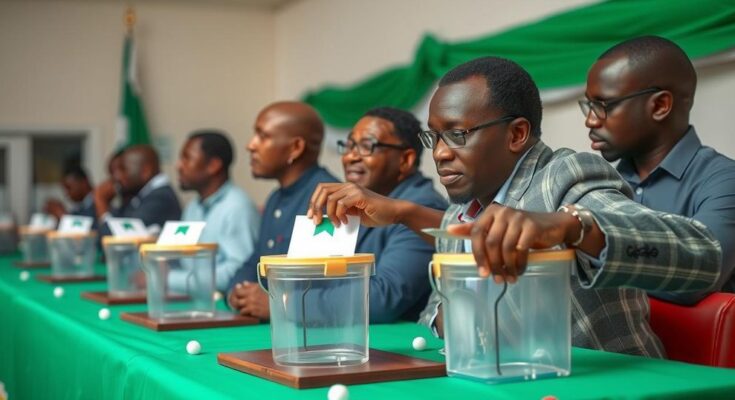Comoros held a parliamentary election marked by a boycott from opposition parties, led by former President Sambi’s Juwa Party, due to accusations of President Assoumani’s autocratic governance. Despite registration of about 330,000 voters out of an 850,000 population, turnout is expected to be low as disillusionment with the democratic process grows. Assoumani’s party dominated the last election, which the opposition deemed non-competitive, and ongoing political repression raises concerns about the election’s integrity.
On Sunday, Comoros conducted a parliamentary election that was notably boycotted by several opposition parties. These opposition leaders accused President Azali Assoumani and his ruling party of increasingly authoritarian tendencies and expressed doubts regarding the election’s integrity. This election, which will determine the 33 seats in the legislature, is anticipated to yield results next week. Despite around 330,000 registered voters from a total population of 850,000, opposition parties foresee a low electoral turnout due to public disillusionment with the democratic process.
President Assoumani’s party, the Convention for the Renewal of the Comoros, successfully secured 20 of the 24 contested seats in the previous parliamentary election of 2020. On the day of the election, Assoumani participated by casting his vote in his hometown of Mitsoudjé, located on Grande Comore, the largest island. The previous election was marred by allegations of being a “masquerade,” as asserted by opposition groups, which also protested last year’s presidential election, calling it fraudulent and triggering violent demonstrations.
The boycott was led by the Juwa Party, associated with former President Ahmed Abdallah Sambi, which had also abstained from the 2020 parliamentary elections. Comoros, situated in the Indian Ocean near Madagascar, has experienced numerous military coups since achieving independence from France in 1975, with Assoumani first coming to power in 1999 through a presidential overthrow. Though he temporarily resigned from the presidency in 2006, he made a political comeback in 2016 and has since won three consecutive elections, including a recent campaign that allowed him to bypass constitutional term limits.
The Africa Center for Strategic Studies, a research body funded by the U.S. Congress, has commented on Assoumani’s regime, asserting that it has been characterized by increasing political repression and a lack of competitive elections. Interestingly, voting proceeded despite the looming threat of Tropical Cyclone Dikeledi, which was forecasted to affect Comoros and the adjacent French territory, Mayotte.
The Comoros archipelago, consisting of three islands off the eastern coast of Africa, has a tumultuous political history marked by military coups and political instability since gaining independence from France in 1975. President Azali Assoumani, a former military officer, has held power for a significant portion of the past two decades, having taken control in a coup in 1999. His administration has faced criticism for adopting authoritarian practices and orchestrating non-competitive elections, raising alarms among opposition parties and civil society groups. The nation, struggling with issues of governance and democratic integrity, is now challenged by the combined effects of political disenfranchisement and natural disasters.
In summary, the recent parliamentary elections in Comoros highlight the ongoing political strife and dissatisfaction among the electorate regarding the democratic process. The significant opposition boycott, alongside allegations of previous electoral fraud, underscores the precariousness of governance under President Assoumani. As the nation grapples with both political and environmental challenges, observers will closely monitor the aftermath of this election and its implications for the future of Comorian democracy.
Original Source: www.seattletimes.com




